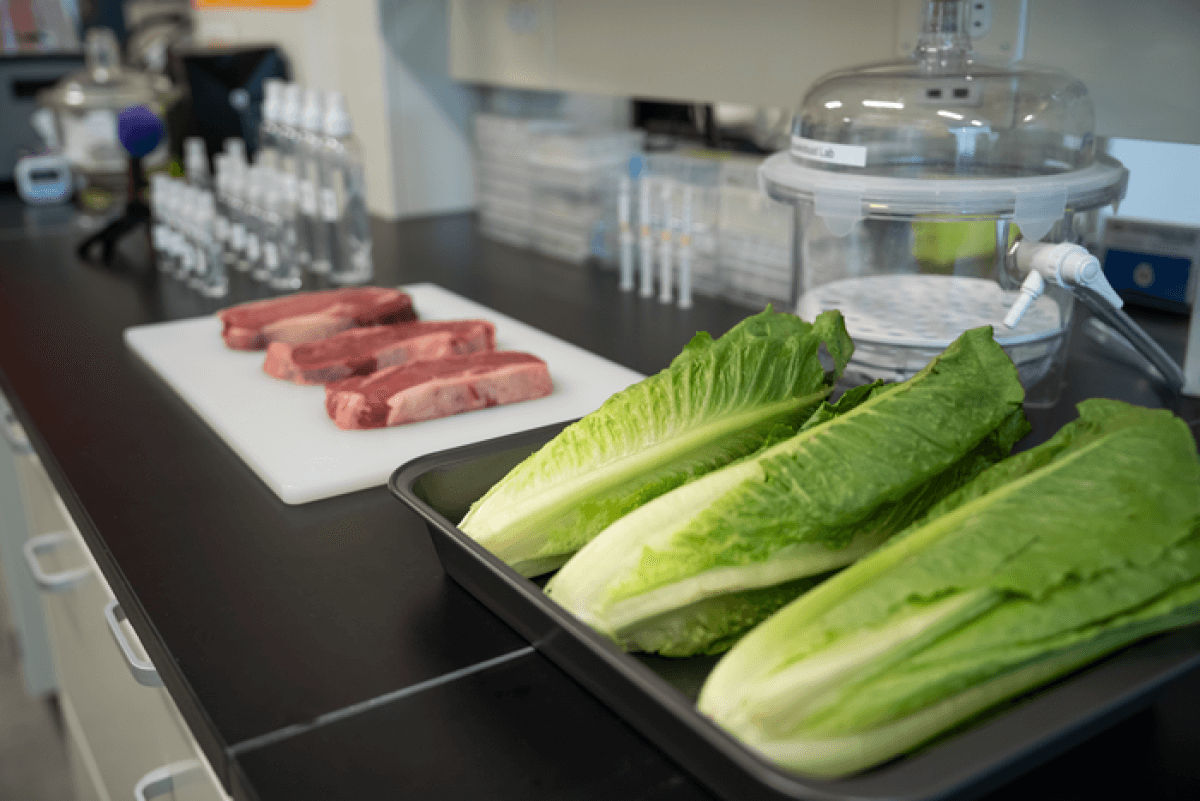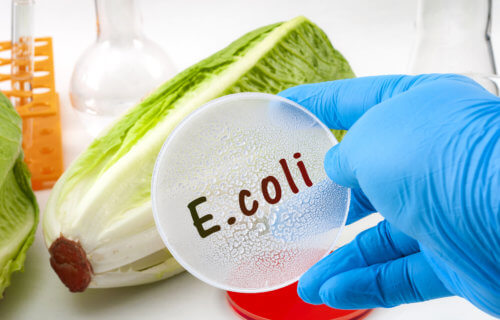HAMILTON, Ontario — We all want our food to be fresh, tasty, and absolutely free of bacteria. Unfortunately, sometimes that isn’t always the case. Recalls due to outbreaks of E. coli, salmonella, or various other germs contaminating certain grocery items and brands continue to happen on a regular basis. Now, researchers from McMaster University are providing a sneak peek into the future of food safety. What’s the secret? Fighting bacteria with viruses!
Scientists have developed a way to “coax” bacteriophages — or harmless viruses that eat bacteria — into linking together and forming microscopic beads. Those beads can then be safely exposed to food items to eliminate harmful pathogens such as E. coli 0157. The beads are incredibly small, measuring about 20 microns (one-fiftieth of a millimeter) in diameter, but they are absolutely packed with millions of phages.
Even better, the research team behind this invention — Prof. Zeinab Hosseinidoust, who holds the Canada Research Chair in Bacteriophage Bioengineering, Prof. Tohid Didar, who holds the Canada Research Chair in Nano-Biomaterials, and graduate student Lei Tian — have developed a spray featuring only the micro-beads. The study authors believe their sprayable disinfectant is both food-safe and highly effective.
“When we spray it on food, we basically gather billions of mini-soldiers to protect our food from bacterial contamination,” says Tian, who led the study as part of his PhD research, in a media release.
This work builds on the very same chemistry research that Hosseinidoust’s lab has been engaging in to provoke phages to connect to one another in quantities adequate enough to form a gel. “They link together like microscopic Lego pieces,” the researcher says. “This organized natural structure makes them much more durable and easier to package, store and use.”
Medical breakthroughs curbed phage research for decades
While research into phage disinfectants and therapies were very promising prior to the introduction of penicillin in the 1940s, interest in continuing that work cooled off considerably once antibiotics made from penicillin arrived on the market. Fast forward to today, and with antimicrobial resistance weakening the power of existing antibiotics, there is renewed interest in phage research.
Phages occur naturally, both in the environment and the body. When they make contact with targeted bacteria they multiply, which explosively increases their antimicrobial power. “It’s a chain reaction, creating a dynamic and ongoing response that is even more overpowering than antibiotics,” Didar explains. “No other antibacterial product – not even bleach – has the special properties that phages do.”
Another big advantage of phages in agriculture and food production is their ability to be directed very specifically to take out harmful strains of bacteria, while leaving beneficial bacteria that enhance foods’ taste, smell, and texture untouched.

The spray kills bacteria on meat and produce
This new phage spray holds major commercial potential, researchers say, particularly since phages have already been approved by the U.S. Food and Drug Administration for use in food. These latest findings reveal that the spray is indeed capable of killing E. coli 0157 in lettuce and meat, two very common sources of disease outbreaks.
Even better, study authors think the very same approach can be adopted against other food poisoning-causing bacteria like salmonella and Listeria. These phage sprays could conceivably be used during food processing, packaging, and cleaning, and even as a treatment for irrigation water and equipment — halting bacterial contaminations at their source.
Moving forward, the research team is planning on testing the new spray’s potential uses in medical settings. For instance, it could be used to disinfect wounds. While medical applications of the spray will take more time to be approved as both safe and effective, a version of the phage spray for food processing disinfection could become available much more quickly.
The study is published in the journal Nature Communications.

